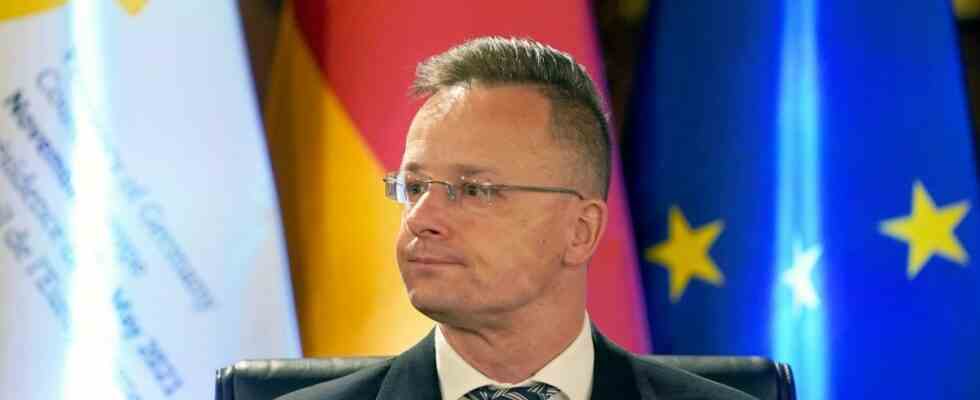“Proposal is tantamount to nuclear bomb” – Hungary announces veto on oil embargo
“Russia must deal with cuts and cessation of production”
The EU Commission proposes an oil embargo against Russia. After a transition phase of six months, an import ban on crude oil is to apply. Whether this period is sufficient is discussed by Dr. Frank Umbach, expert for energy security at the University of Bonn.
Hungary votes against the European Union’s planned embargo on Russian oil imports. The sanctions package means “only problems” for Hungary. The Hungarian people should not pay the price for the war. Ursula von der Leyen promptly traveled to Hungary – and is optimistic.
Dhe EU country Hungary wants to veto the planned European Union embargo on Russian oil imports. “Hungary will not vote (in the EU Council) for this package because the Hungarian people must not pay the price for the war (in Ukraine),” Foreign Minister Peter Szijjarto said in the Budapest parliament on Monday. In order for the sanctions package to be implemented, all countries must agree.
In negotiations that have been ongoing since last week and will continue this week, EU countries have not yet reached an agreement on an oil embargo against Russia. The EU Commission had proposed giving Hungary, Slovakia and the Czech Republic more time to fully implement the delivery stop. However, the proposal did not go far enough for Hungary – but also for other countries.
The sanctions package means “only problems” for Hungary, said Szijjarto on Monday. It does not have any solutions for how the country, which is dependent on Russian oil, can replace the missing imports. “This Brussels proposal amounts to a nuclear bomb being dropped on the Hungarian economy,” he said. The right-wing Prime Minister Viktor Orban had already attempted the same comparison in a radio interview last Friday.
In the struggle over the EU oil embargo, the head of the EU Commission, Ursula von der Leyen, promptly traveled to Hungary. Von der Leyen sees progress in the stalled negotiations after a meeting with Hungary’s Prime Minister Viktor Orban.
“The conversation with Prime Minister Viktor Orban tonight was helpful,” the German politician wrote on Twitter on Monday evening. “We’ve made progress, but more work is needed.” It’s also about regional cooperation for a better infrastructure for oil deliveries.
The Russian journalist Marina Ovsyannikova talks to Jan Philipp Burgard, editor-in-chief of the WELT news channel, about May 9 and the war in Ukraine. Subscribe to the “WELT talks” podcast, for example Spotify, Apple Podcasts, Amazon Music, deezer or directly by RSS feed.

